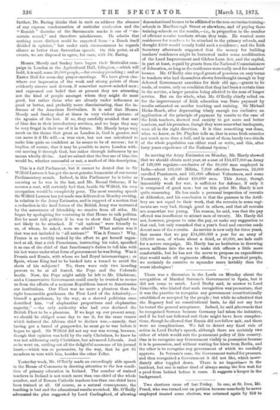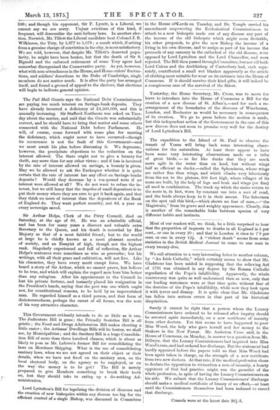Two elections came off last Friday. In one, at St.
Ives, Mr. Praed, who was turned out on petition because somebody he never employed treated some electors, was returned again by 658 to Z50-; and though his opponent, Sir F. Lyeett, is a Liberal, we cannot say- we are sorry. Unjust evictions of this kind, if frequent, will demoralise the anti-bribery laws. In another elec- tion, Norwich, Mr. Tillett the Liberal candidate beat Colonel J. R. Wilkinson, the Tory, by 5,877 to 5,079; a result which, if arising from a genuine change of conviction in the city, is most satisfactory. We are told, however, that despite Mr. Tillett's deserved popu- larity, he might have been beaten, but that the death of Sir S. Bignold and the enforced retirement of some Tory agent had somewhat disorganised the Conservative party. As yet, however, what with non-attendances in the House, and Home-rulers' fluctua- tions, and soldiers' desertions to the Duke of Cambridge, single members do not matter much. It is after the party has arranged itself, and found a ground of appeal to the electors, that elections will begin to indicate general opinion.



































 Previous page
Previous page